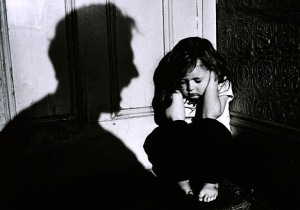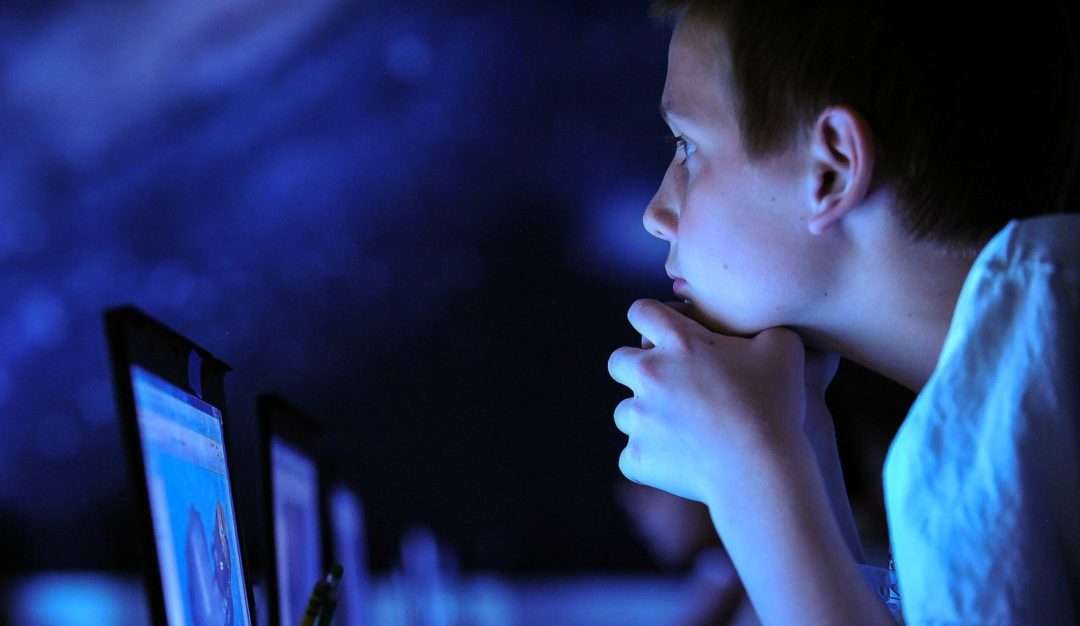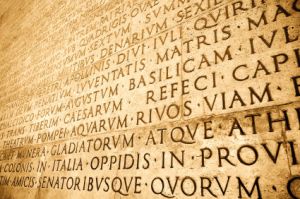
I realize the claims I’m about to make here are going to upset some. Many of you are going to violently disagree with me, and I’m anticipating that. I’m not accusing the parents who hold to these ideas as abusers– they have no idea that the system they so fervently believe in as “biblical” is abusive. I’m making some very big, very broad claims, and I’m making them without nuance or complexity simply because of time constraints. There is a Polemical nature to what I’m saying, and I’m aware of that.
Shortly before I married Handsome, I was in his childhood home, kicking around with his younger brother. We’d just finished watching a movie, and we’d been discussing all sorts of interesting things– the merits of a Confederacy over a Republic, for example, and the meanings of oligarchy and aristocracy. Smart kid, right? Well, Handsome came downstairs, and I’m not sure how we got around to this, but we started talking about some of their mutual childhood memories; namely, how they were taught to respect their mother. Handsome and his brother started reminiscing about how their mother would “count” in order to get their attention.
When I say “count,” I’m talking about what we see in the grocery store every day: “I’m going to count to three,” and the child has the opportunity to respond within that time frame, or, well, consequences. That is not how their mother practiced it– she used it only as a means of getting attention, with no threat of consequences implied — but that’s the typical perception of “counting,” I think. Hopefully you agree.
When they started talking about this idea, I scoffed. Probably rolled my eyes, too. “We’re not doing that with our children,” I pronounced, quite firmly.
Handsome turned to me, genuinely confused by my obvious hostility to the idea. “Why not?”
“It’s just teaching them that they can disobey however they want to. That I don’t really mean it when I call them.”
He stared at me, clearly not following. “Huh?”
“Children need to obey their parents. They don’t get to define how and when they obey– we do.”
What followed was a rather intense discussion that, in retrospect on my part, didn’t make any sense. I started trying to argue that “counting” was inherently a threat, and I didn’t want to threaten my children, but somehow completely missed that the kind of authoritarian, totalitarian, dictator-style approach to parenting I was advocating was based on threats.
During our conversation, I started feeling very triggered, and I could feel a panic attack coming on, which perplexed me. Why was I reacting this way? Why was I spiraling out of control? I could feel myself start to tremble all over, and I knew I had to leave. I went up to my room, curled up on my bed and cried, completely not understanding why I was panicking, or even what had triggered me. What was going on? What had caused this? Why was I so upset, when Handsome had not done anything remotely triggering?
~~~~~~~~~~~~~~~~~~~~
At the time I attributed it to stress- it was a week before our wedding, and it had been a somewhat intense, although still friendly and open, conversation.
I know what it is now, although thinking about it is still very muddled. But, it is linked to the idea of instant, cheerful obedience that was advocated by nearly everyone I knew as a child and teenager. All the books we read taught it, and it was practiced by everyone in the community. Every child I knew had been taught since they were infants that they were to obey instantaneously and without question– and not just their parent. All children were required to obey all adults, and we could be punished by any adult immediately and with the direct approval by our parents.
My supposed “pastor”-‘s wife used to summon her children by whistling. She whistled through her teeth, and the sound was distinct, unmistakable, and loud. You could hear it from anywhere inside Wal-Mart, practically. Anytime she whistled, all of her children responded immediately— and in the sense of “immediately” that is the result of programming. Their response was so ingrained, so automatic, when they heard a whistle it was like watching Pavlov’s dogs. For all their talk about the evils of psychology, conservative religious disciplinarians sure jumped on board the behavioral modification and classical conditioning bandwagons.
Personally, I was taught to respond with a cheerful, respectful “yes ma’am,” to any demand, with the rationalization that it’s impossible for a child to say “yes ma’am” and try to fake respect if they’re not actually feeling it. I was required to drop anything I was doing the second I was summoned, because the summons was always more important than anything I was doing.
This continued into adulthood– I was still living with my parents, and had gotten home from an exhausting shift at work. All I wanted to do was curl up on the couch and watch the movie I’d rented when my mother called me into the office.
“Why?” I responded, believing it to be a reasonable response. I didn’t want to move. I was tired. I wanted to watch my movie and then go to bed.
“Just come here!”
“But why? I’m busy.”
“No, you’re not. Come here. I want to show you something.”
“What is it?”
“Just come here!” The frustration in her tone was escalating.
I realized at that point that if I was ever going to watch my movie I’d have to do whatever it was my mother wanted. When it turns out she wanted to show me a map because I’d gotten lost the day before, all I wanted to do was leave. Maps are completely useless to me– they make no sense, and unless I am actually driving on the road with one, all those little lines, squiggly and straight, mean absolutely nothing to me. My sense of direction is abysmal, and yes, it takes me a little while to figure out where I’m going and how to get there. But maps– they are worse than useless. But, they work really well for my mother. And, she was convinced, despite my protestations to the contrary, that if I just stared long and hard enough at the squiggly lines I wouldn’t get lost again.
She was the parent.
I was the child.
What I wanted to do didn’t matter. That I was tired didn’t matter. That I knew myself, my own capabilities and limits, didn’t matter. She knew how to help me, and she wanted to help me right now, no matter if I told her it was a waste of time or I was busy. I didn’t even get to define for myself if I was busy– that was determined by her. I don’t know what’s good for me, but because I’m her child, she does.
This is one of the biggest problems of the “Instant Obedience Doctrine.” No one grows out of it. Not parents, not children. And the children, fed since birth this dogma of absolute, unending, cheerful, complaint obedience to all authority, are implicitly indoctrinated against every outgrowing it.
This is why I believe that the Instant Obedience Doctrine (my term) is inherently abusive.
My parents didn’t abuse me with this doctrine. Our relationship is fine, although we’re having our problems adjusting to me being an independent, autonomous, free-thinking adult. It’s rough, but we’re doing it one day at a time.
The problem with the Instant Obedience Doctrine is that it grooms children to be abused. This is inescapable. Not every child brought up in this doctrine is being abused or will be abused, but it creates an entire system where abuse will be allowed to go unchecked, mainly because the child will have absolutely no concept of abuse. They will not have the ability to think of themselves as autonomous, as free agents, as having rights over their own bodies and what they get to do with them– because this idea is explicitly disavowed. Children do not have any ability to choose in this system– that ability is systematically taken away from them as part of “biblical child-rearing.” We have been taught since infancy that we are never, ever allowed to say “no” to an authority.
Oh, the people who teach this doctrine will pay lip-service to teaching their children about abuse. They’ll say that they’ve taught their children to tell them if someone touches them inappropriately, or if someone does something they don’t like. But the doctrine completely overrules this “stop gap” because the primary, foundational idea in this doctrine is that children are foolish, children are ignorant, and children must be corrected by authorities, usually through physical pain (corporal punishment).
This does unspeakable damage to everyone involved– the parents and the children. Because the children eventually grow up, and if they start asserting independence, like I am now, our relationships can be damaged, because the independence is sudden and unexpected. Expressing my own ideas, disagreeing with my parents can be very emotional, upsetting territory, because the point of the Instant Obedience Doctrine was to raise children who are ideological replicas of the parents. The fact that this doctrine essentially means that parents will never actually get to know who their own children are is completely lost in all the rhetoric.
And for many children brought up in this system, the biggest problem is that they have no access to any concept of being their own, independent person. That idea simply doesn’t exist. They exist to do the bidding of authorities. They are property. These narratives are internalized unconsciously by everyone involved in the process.
Again, not every child brought up in this system is physically or sexually abused by his or her parents, or even by other authority figures in their lives– but they are emotionally and psychologically abused by the fundamental notion that they do not belong to themselves, that they are incapable of making their own choices.







